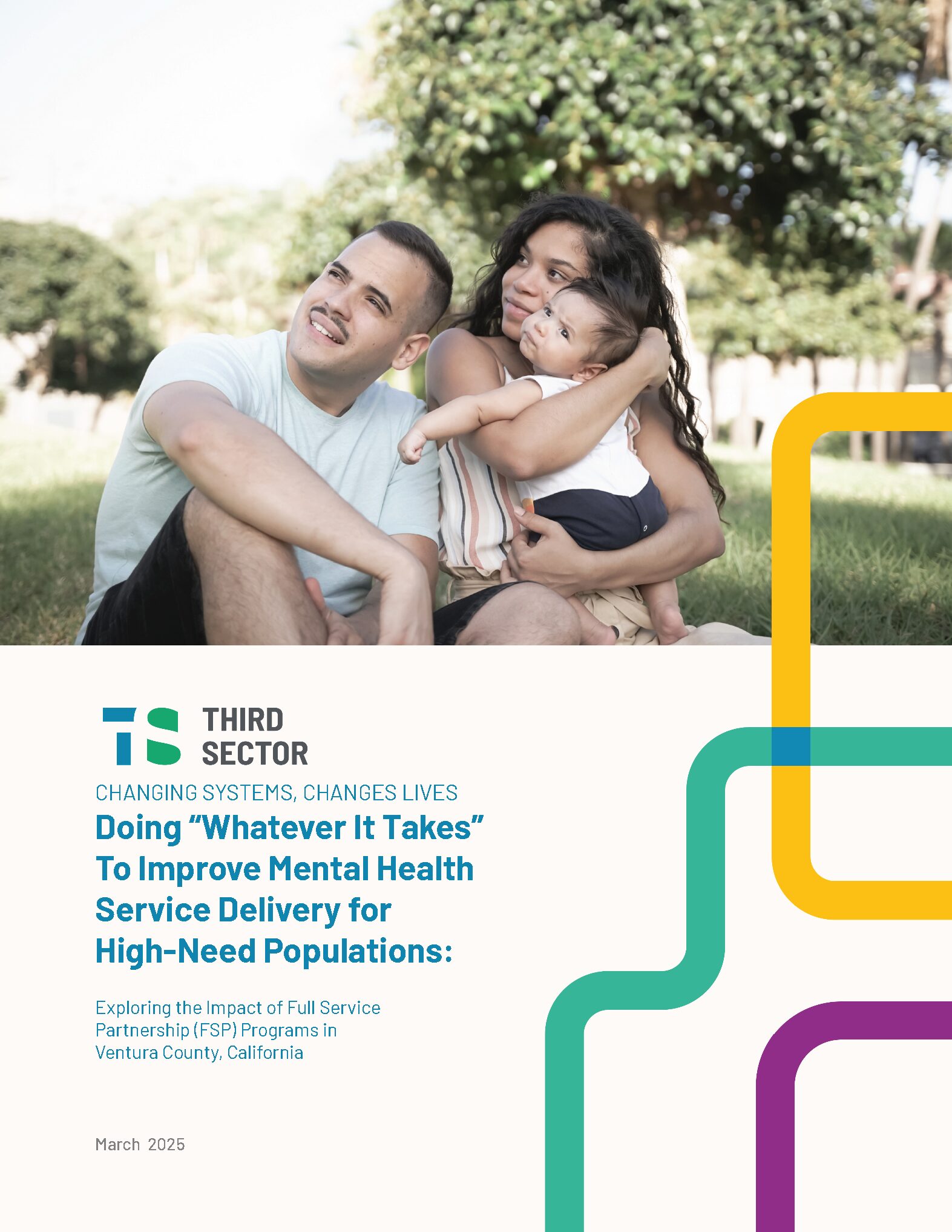From Recognition to Integration: Investing in Community-Defined Evidence for Mental Health EquityLessons Learned From Our Work With Fresno County Department of Behavioral Health
Most Americans agree that mental health care should be accessible, affordable, and tailored to an individual’s background and needs. Yet too often, our models of evidence-based care may not meet the needs of BIPOC and LGBTQIA+ community members, who experience additional barriers to care, including financial constraints, stigma, and a lack of culturally responsive providers.
To address these gaps, California has embraced Community-Defined Evidence Practices (CDEPs)—approaches rooted in cultural traditions and supported by academic research—as effective alternatives to traditional care models. CDEPs are longstanding, culturally responsive practices that provide healing and holistic mental health support in ways that traditional, evidence-based practices (EBPs) in behavioral health care typically do not. Initial funding for CDEPs in California through the California Reducing Disparities Project (CRDP) is the result of years of advocacy on the part of community-based organizations that offer culturally relevant care grounded in lived experience. To build a truly inclusive behavioral health system, California must move beyond recognition of CDEPs toward sustainable funding and delivery mechanisms of these critical approaches.
As California reimagines its behavioral health system under the Behavioral Health Services Act (BHSA), sustainability for CDEPs hinges on whether counties and CDEP providers can work together to integrate these innovative practices into counties’ existing behavioral health continuum and provide a sustained model for funding. The diversity of what CDEPs offer–from traditional indigenous mindfulness practices to Hmong practices for self-care—means that the strategies for integration and sustainability must be equally varied. Unlike traditional evidence-based interventions, CDEPs do not neatly fit into existing models for behavioral health care services that can be reimbursed through insurance, presenting challenges as counties work to identify how they can fit into their behavioral health offerings. Moreover, CDEPs emerged within communities reflecting various cultural values and needs, making their integration into county behavioral health systems a complex, but necessary, undertaking.
In the last nine months, Third Sector has worked closely with the Fresno County Department of Behavioral Health and three community-based organizations that offer CDEPs in the county to identify practical, tailored strategies for CDEP sustainability. These strategies offer ongoing revenue opportunities for community-based organizations through integration with Medi-Cal billable services.
These three examples illustrate how other counties can integrate and sustain CDEPs into a thriving behavioral health ecosystem, functioning as program delivery settings, access points, or embedded supports. While they do not comprehensively describe every CDEP model in California, they provide a starting point for behavioral health departments to think creatively about how they might incorporate CDEPs into their broader ecosystems of care.
1. CDEP as a Setting for Billable Services
The Sweet Potato Project, a year-long cohort program led by the West Fresno Family Resource Center, is an agricultural learning program for middle-school-and high-school-aged young people in Southwest Fresno. Young people in Fresno experience the persistent effects of systemic disinvestment, racial inequity, and economic exclusion. To address these challenges, the Sweet Potato Project disrupts cycles of disengagement and disempowerment with culturally responsive and community-rooted programming, fostering mentorship, leadership development, and entrepreneurial skills that promote positive mental health, self-efficacy, and pathways to education and economic opportunity.
The Sweet Potato Project curriculum components align closely with Medi-Cal-reimbursable services, like day habilitation services and violence prevention, which indicates that the Sweet Potato Project could serve as a wraparound setting, allowing Medi-Cal services to be seamlessly integrated into the existing programming. Working with the West Fresno Family Resource Center, Third Sector identified a need to build the organization’s capacity to track, document, and bill for services already taking place as part of the Sweet Potato Project as a key sustainability strategy.
2. CDEP as an Outreach and Referral Mechanism
Hmong Helping Hands is a cohort program run by The Fresno Center to promote psychological, social, and spiritual well-being for Hmong adults. Many Hmong adults and elders are refugees from the Vietnam War and face mental health challenges and social isolation due to the trauma of war, displacement, and cultural disconnection. By blending traditional Hmong healing practices with Western mental health approaches, Hmong Helping Hands offers adults necessary support in a trusted, culturally affirming environment.
Hmong Helping Hands could serve as an entry point into mental health services for those who need additional support. For example, through culturally grounded outreach and assessment, the program could connect participants to behavioral health services that The Fresno Center already offers, such as Enhanced Care Management or Full-Service Partnerships. In collaboration with the Fresno Center, Third Sector identified that by having Hmong Helping Hands act as a “funnel” or referral strategy for specialty mental health services, the Fresno Center could move toward becoming a full-spectrum behavioral health provider and ensure its financial sustainability.
3. CDEP Embedded Within Billable Services
Pláticas and Atención Plena are components of the CDEP run by Integral Community Solutions Institute (ICSI) that promotes holistic wellness and mental health awareness among Latino young people, many of whom face cultural barriers when accessing traditional mental health care. Pláticas and Atención Plena offer a culturally responsive alternative, through traditional mental health practices, including rituals, ceremonies, meditation, and Indigenous symbolism. The program incorporates Indigenous and Latino cultural wisdom into group and individual therapy sessions, enhancing participant engagement and clinical outcomes.
Third Sector and ICSI identified that while the organization already bills Medi-Cal for therapy services, it needs additional capacity support to streamline billing processes and ensure claims are reimbursed. Third Sector is supporting the delivery of cost modeling and implementation support to meet this goal.
As California transitions to the BHSA, counties should consider how CDEPs can be incorporated into their broader service portfolios to meet the needs of California’s BIPOC and LGBTQIA+ communities, particularly as guidance for early intervention requires counties to use culturally responsive and linguistically appropriate methodologies.
Finally, as jurisdictions across the country consider reducing behavioral health disparities, the CDEP approach in California offers a way forward: invest in community-rooted innovations and integrate them into existing systems. At Third Sector, we’re committed to helping local leaders take the next step—from funding pilots to sustaining impact. Contact Will Rhett, Managing Director, Behavioral Health at wrhett@thirdsectorcap.org to learn more about how we can help!


